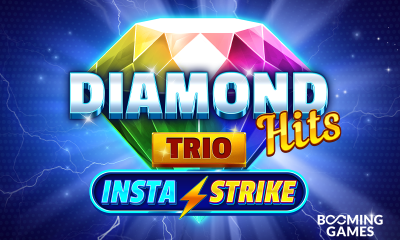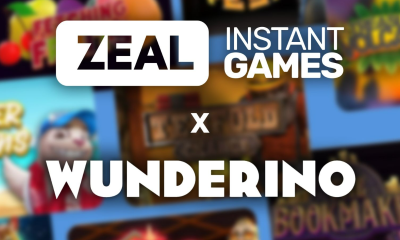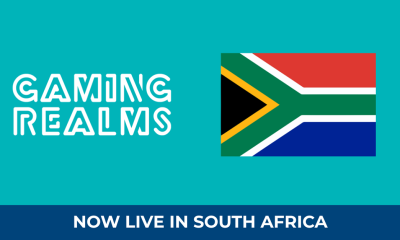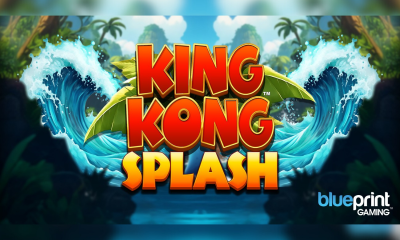Gaming
Exclusive Q&A with Alexandre Salem, Global Director of Gaming Partnerships at Huawei
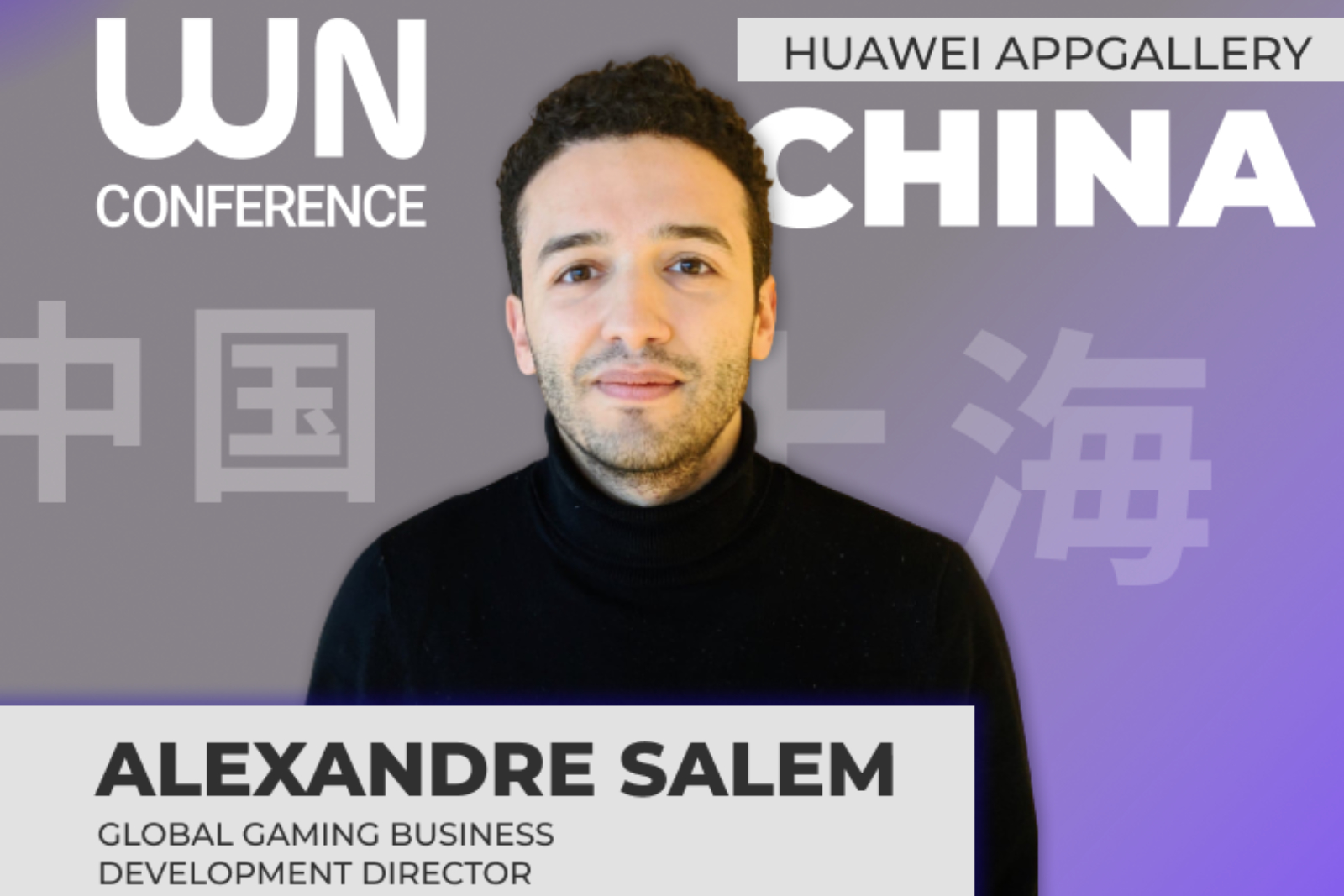
We have had an enlightening interview with Alexandre Salem, Global Director of Gaming Partnerships at Huawei.
Here he talks about the Huawei Gaming Ecosystem, how it’s gearing up to challenge the near duopoly Google Playstore and Apple Appstore, and why game developers shouldn’t miss it.
Here is the full text of the interview.
Q. Let us begin with a brief introduction to the Huawei Gaming Ecosystem. How does it help to facilitate the ultimate mobile gaming experience for users?
A. AppGallery is the official app distribution platform at Huawei, and the third-largest app marketplace in the world. We’ve designed it as a gateway to some of the latest and most exciting mobile game experiences for consumers.
When we look at the increase in people gaming around the world, it’s clear just how significant a role app marketplaces will have to play. We’re looking at 3.2 billion global gamers by 2023, and from that we’re predicting over two thirds will be on a mobile device.
To drive the global growth that we’re seeing, we provide our developers with the innovative technology they need to create the ultimate gaming experiences for their customers. Developers can integrate with elements of Huawei’s HMS Core for example to harness the unique software and hardware capabilities – all in the name of imagining new gameplay for mobile gamers.
There’s also the choice of integrating with app development tools for different Huawei devices, enabling gamers to switch between a MatePad and a P40, for example, with little effort and an overall seamless and enjoyable experience.
We’re already proud of our reputation for building quality hardware to facilitate a superior gaming experience for users, bringning some really unique gameplay to the table. Take Perfect World Games’ ReEvolve, for example. It’s the first mobile game that you can play on folding screen technology.
We’re also continuously looking to grow the number of mobile games available on AppGallery, with the aim of establishing Huawei as a true powerhouse of mobile gaming. Last year for example we launched a one-stop gaming platform for our more committed gamers called GameCenter, promoting an even richer gaming experience to those interested in exclusive discounts, unique gameplay and an exciting reward scheme. While AppGallery is Huawei’s comprehensive marketplace for all app categories, users who particularly love games can download GameCenter for an end-to-end game service.
Q. Could you provide some key stats regarding the number of users, games and developers in the Huawei Gaming Ecosystem currently?
A. AppGallery’s progress is something we’re really excited about. Considering the platform is only three years old in overseas markets, we already have a huge selection of convenient, fun and innovative gaming options to choose from. AppGallery caters to the different interests of its committed mobile gamers, from role-playing, action, MOBA, and MMORPG, to puzzle, turn-based and idle games.
In line with the growth of mobile gaming that we’re seeing more generally, AppGallery is also expanding – there are now 500% more games available on the platform compared to a year ago. Our users are often amongst the first to experience innovative new gameplay from around the world, with launches from the past year including AFK Arena, Asphalt 9: Legends, Clash of Kings and many more.
AppGallery continues to see strong growth in gaming availability, with over 12,000 games available and over 80 million games installed overall. Furthermore, there has been a 100% growth in games revenue in 2020 compared to 2019, and a 120% growth in paying players.
Thanks to the ongoing development of the HMS ecosystem, AppGallery now has 540 million monthly active users. There are 2.7 million registered developers worldwide, 134,000 apps integrated with HMS Core and, in 2020, we saw 384.4 billion app distributions (174 billion more than the previous year) – many of which are attributable to the mobile gaming sector.
Q. Huawei AppGallery boldly attempts to challenge the near duopoly of Google Play store and the App Store. What do developers and publishers gain exclusively by choosing AppGallery?
A. Something that sets AppGallery apart from competitors is the close relationship that we have with developers. We work closely with our partners to identify their own aspirations and desires – and not just in the gaming space.
Something that receives a lot of great feedback from developers and mobile users alike is our dedication to technical and marketing support. We implement a “Global + Local” Strategy, designed to help developers utilise our platform. It works both ways, because not only are we supporting smaller developers at the local level, but we’re also providing our diverse global customer base with the most relevant apps and games for them.
We also provide one-stop, full-spectrum operational support for developers worldwide, covering the entire development cycle. From ideation, development, distribution, operation to data analytics for global developers, we’re there to help. And the partnership doesn’t end at launch – we have dedicated teams to provide ongoing business and commercial support.
Building an ecosystem from scratch is something that takes a lot of time – we’ve been working on this for three years and the progress is so exciting. We’ll continue to prioritise our partners, providing them with an opportunity to tap into the competitive mobile market.
Another differentiating benefit we bring to our gaming partners is an in-depth expertise in the Chinese market, the largest in the world in players number and revenue. For the developers interested in penetrating this market, we can bring a suite of tailor-made services to maximize the chances of success.
Q. Tell us about the advantages and support that game developers can enjoy as part of the Huawei Ecosystem.
Mobile gaming is a huge market and one that is growing significantly. Something that we advocate for at Huawei is helping developers to get their foot on the ladder and grow within an increasingly competitive space.
With this in mind, we empower local developers with our on-the-ground support. We now have five global developer centres in Romania, Egypt, Mexico, Malaysia and Russia. We also have three ecosystem labs in Germany, Poland and Russia, as well as over 20 online Huawei Developer Day (HDD) events throughout the year. Developers can also utilise the seven DigiX Lab Innovation laboratories – they’re based in Dublin, Moscow, Düsseldorf, Mexico, Dubai, Johannesburg and Singapore. Here, developers can access real machine debugging, development capability experiences and other tools and guidance.
Our collaboration with developers doesn’t stop when a game is on-boarded in AppGallery. Our goal is to support gaming developers in attracting, converting and retaining as many players as possible. We don’t hesitate to roll up our sleeves alongside our gaming partners to run co-marketing campaigns to boost games discoverability.
Q. What are the options for monetization and the advertisement support that publishers can enjoy as part of the Huawei Ecosystem?
A. Something that we’re passionate about at Huawei is aligning our partners’ business development goals with the tools they need to achieve them. There are a variety of different HMS Core Kits that developers can choose to integrate with to harness the unique software and hardware capabilities we have on offer.
This includes the Huawei Ads Kit which empowers developers to create high-quality and personalized ads within their apps. Alongside the easy-to-use Publisher Service, developers can work seamlessly with third-party advertising and tracking platforms to monitor ad success. We also have a range of platforms to encourage our partners to boost their revenue, from the traffic monetization platform − a one-stop platform for developers to earn more − to advertising identifiers and conversion attributions.
In a nutshell, we provide a flexible set of services for gaming developers to fit their business models, whether they monetize through IAP, ads, premium paid games or a mix of those revenue streams.
Q. Could you enlighten us on the user data protection measures that Huawei has taken to ensure that the personal information of users is not compromised? This is probably an area where even the biggest companies on the internet have an inconsistent record.
A. AppGallery has a full-cycle security and protection system, including developer real-name verification, a four-step review process, download and installation protection as well as a prevention mechanism for secure app operation. Protecting user privacy and security is something that we take very seriously.
In addition to ensuring that all default apps fully comply with privacy compliance requirements, EMUI provides permit management, notification management, audio/video reminders, location service management and other privacy settings for apps, giving users visibility and control over their permissions.
Huawei has also established local data storage in six regional centres and 15 data centres worldwide. Complying with the localized service distribution and deployment policy, personal information is encrypted and stored in the area to which the user belongs. For example, Huawei stores all European user data in Germany, where rules and regulations call for the highest standards of user privacy.
To further ensure the safety of our users, we have implemented an age rating system globally, which intelligently blocks non-age-appropriate content according to user settings to provide a safe and healthy application environment for underage users.
Q. Huawei is betting big on the Internet of Things (IoT). How do you think the IoT is going to make its mark in the gaming sector?
A. In two years’, time, we expect to see 2.6 billion gamers streaming and competing together on mobile devices. The IoT is another area where we have a reputation for taking the lead and driving an industrial-scale digital transformation. Through our all-scenario, modular solutions, we’ll ensure that our mobile gamers have access to the smoothest possible gameplay experience.
In the next few years, we expect to see gamers having access to an increasing number of smart devices and wanting to play their favourite games in a frictionless manner across those devices. Let’s imagine the following user journey: a gamer might receive a notification on their smart watch reminding them to a play the next shooter game level. They might pass a few levels during the commute to work on a smartphone, and continue playing at home on a tablet, before competing with friends on a smart TV over the weekend. This type of cross-device and cross-platform gameplay will require developers to evolve their game development practices. It will mean that we need to bring hardware and software making this “omni-channel gaming” possible.
Q. Finally, what are Huawei’s major initiatives in the near future to deliver the ultimate mobile gaming experience?
A. Our top priority remains our users – we’ll continue to provide them with access to the best, most relevant mobile games in the world. There are a number of unique ways in which we’re able to do this. For example, we listen to our global customers’ needs through Wishlist – a tool that AppGallery users can use to recommend an app that they’d like to see available on the platform.
We also have staff dedicated to reading users’ feedback in Wishlist and analysing apps with the most votes. This allows us to prioritise the most wanted apps and ensure that consumer appeal is addressed, so that AppGallery is adapting to the fast-changing mobile app landscape.
We are also keeping in mind gamers needs and preferences when we design and launch new hardware on the market. I am extremely excited about our line-up of smartphones, smart TVs, connected watches and other devices and I am intimately convinced that this hardware ecosystem will bring the gaming experience to a new level.
Looking at the growth that the gaming industry has seen this year alone, it’s our mission to ensure that Huawei remains at the forefront of mobile gaming.
Powered by WPeMatico
Codere Online
RubyPlay and Codere Online join forces to elevate gaming offering in Mexico

RubyPlay, the studio-based content ecosystem, has strengthened its footprint in Mexico through a new partnership with Codere Online (Nasdaq: CDRO), one of the country’s leading digital sports betting and casino operators.
The collaboration sees Codere Online integrate a broad selection of RubyPlay’s most popular titles, including player favourites such as J Mania® Loco Habanero, Grand Express Diamond Class, and Zeus Rush Fever® Deluxe SE. The deal also incorporates content from Koala Games, one of the fastest-growing studios within RubyPlay’s ecosystem, featuring hits like Voltage Blitz® Rapid and Voltage Blitz® Vortex. Codere Online will gain ongoing access to additional content from RubyPlay’s wider studio network as new titles are released.
This partnership reinforces RubyPlay’s expansion across the LATAM region, where its content has been performing strongly with multiple leading brands. At the heart of this growth is RubyPlay’s multi-layered content ecosystem, designed to deliver a diverse and tailored portfolio while benefiting operators of all sizes. The model enables faster delivery cycles, greater portfolio variety, and improved responsiveness to both operator needs and evolving player preferences.
Dima Reiderman, CCO at RubyPlay, commented:
“Partnering with Codere Online represents a significant milestone in our expansion across Mexico and the wider LATAM region. The operator’s strong brand recognition and vast customer base make them an ideal partner to reach even more players. Through our studio-based ecosystem, including Koala Games and Mad Hat Games, we can deliver market-focused content to support Codere Online’s evolving strategy in Mexico and LATAM.”
Sarit Adania, Head of Casino Product at Codere Online, added:
“RubyPlay’s consistently high-performing titles will be a significant addition to our online casino offering in Mexico. By integrating content from both RubyPlay and Koala Games, we are diversifying our portfolio and continuing to deliver the engaging, premium experiences our players expect.”
The post RubyPlay and Codere Online join forces to elevate gaming offering in Mexico appeared first on Eastern European Gaming | Global iGaming & Tech Intelligence Hub.
François LaFlamme
Motorola Becomes the Official Smartphone Partner of FIFA Heroes Game
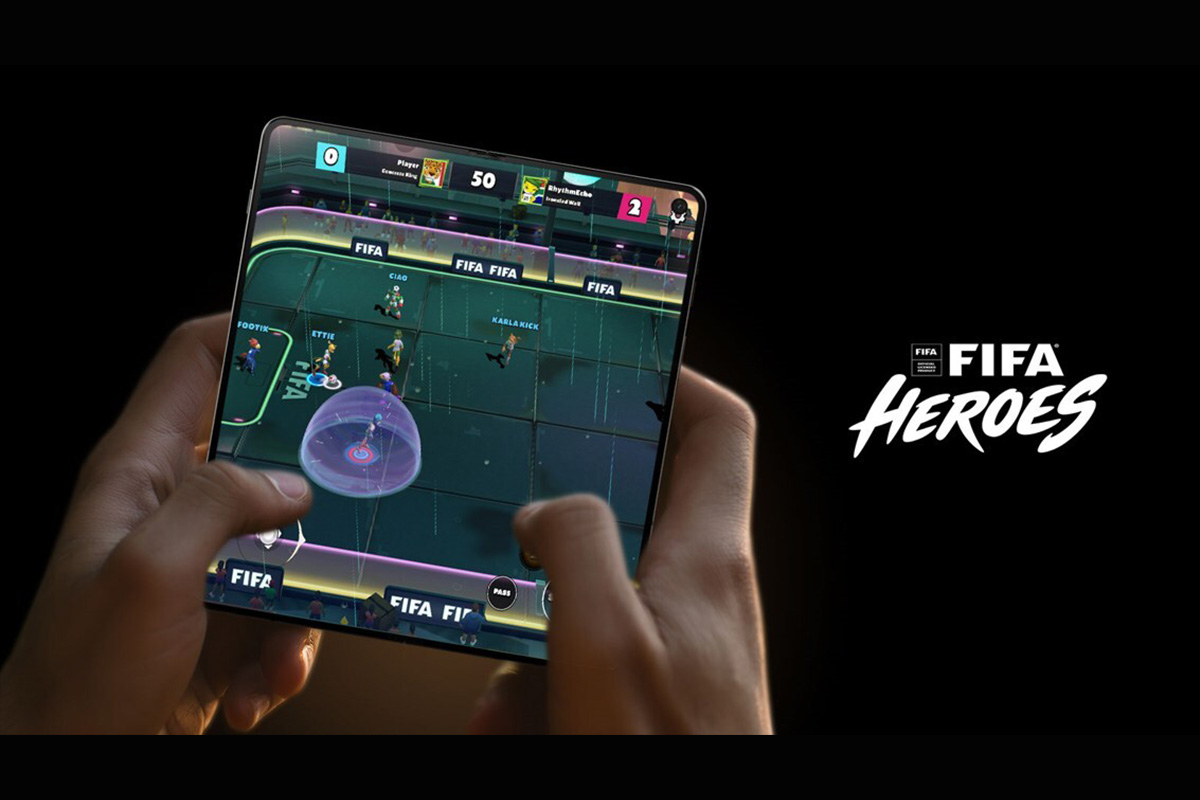
Motorola, a Lenovo company, has become the official smartphone partner of the recently announced FIFA Heroes game, published by Solace. FIFA Heroes is an arcade-style, 5-a-side football title that, for the first time, features real players, mascots and fictional IP characters on the same pitch. This partnership brings together Motorola’s cutting-edge mobile technology and the game’s immersive gaming experience, creating a seamless experience for fans to enjoy the world’s most popular sport in a fun and interactive way.
As the official smartphone partner for the FIFA World Cup 2026, Motorola is committed to bringing the excitement of the tournament directly into consumers’ hands. FIFA Heroes delivers on that promise, offering fans innovative, mobile-first experiences that keep them connected to this unique moment in time.
With this partnership, Motorola’s presence will extend across multiple touchpoints. Motorola will appear directly within the FIFA Heroes game, and many upcoming Motorola smartphones will include instant access to the newest FIFA-licensed mobile game. Fans can also download the game from the Google Play Store, making it simple to play from anywhere.
All Motorola users will gain access to exclusive in-game content designed just for them, including power up tokens and gems, game emotes, a retro razr goal celebration, playable characters, and more. This content is part of a broader collaboration that will unfold through a series of global activations, leading up to and throughout the FIFA World Cup 26, giving fans around the globe new ways to connect with the action, on and off the pitch.
Beyond the content itself, the partnership introduces a gaming experience designed specifically for the brand new razr fold, redefining what a foldable form factor can bring to the gaming space. This exclusive experience optimizes the device’s large 8.1″ unfolded display so that players get an expanded view of the pitch that keeps the action fully in focus. Plus, the extra screen space makes it so that controls can sit comfortably below gameplay for an unobstructed display, and also gives players the flexibility to customise their layout for optimal ergonomics.
“This collaboration goes beyond gaming—it’s about delivering an experience that feels faster, smoother, and more connected for every fan. By working closely with Solace and FIFA, we’ve optimized FIFA Heroes for Motorola devices so players get the best possible performance right out of the box. It’s a powerful way to show how our technology enhances the way people play, connect, and experience entertainment, and we’re excited to share even more in the months ahead,” said François LaFlamme, Chief Marketing Officer at Motorola.
The post Motorola Becomes the Official Smartphone Partner of FIFA Heroes Game appeared first on Eastern European Gaming | Global iGaming & Tech Intelligence Hub.
Bet on Games
Bet on Games Premieres Ranch Robbery — Rugged, High-Octane Crash Experience
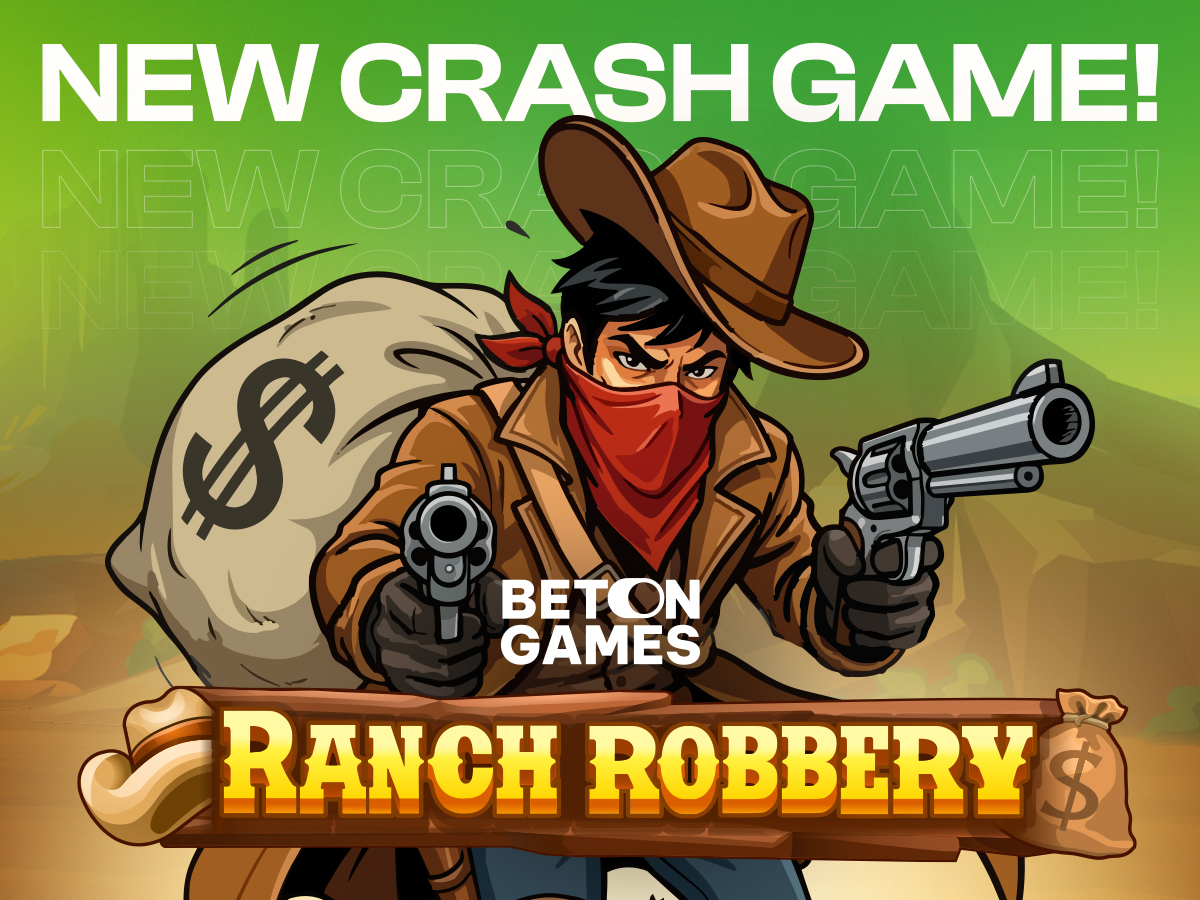
Bet on Games unveils Ranch Robbery, a fresh crash game that infuses the wild spirit of the Wild West into the rapidly expanding instant category. The launch enhances the brand’s crash lineup with an audacious thematic approach and performance-oriented features.
As a key segment within the BETCORE ecosystem, Bet on Games keeps growing its instant and crash portfolio, now surpassing 200+ titles ready for integration. With Ranch Robbery, the brand expands its crash offerings, merging established gameplay mechanics with a unique Western theme aimed at distinguishing itself in competitive environments and captivating action-oriented players.
About the Game
Ranch Robbery takes place in a uniquely designed frontier setting where tension escalates in real time. A cowboy dashes across the ranch as the multiplier rises dynamically. The more extended the run lasts, the greater the possible payout; however, if the escape concludes before cashing out, the wager is forfeited.
Every round lasts merely seconds, resulting in a quick decision-making cycle and continuous adrenaline.
The post Bet on Games Premieres Ranch Robbery — Rugged, High-Octane Crash Experience appeared first on Eastern European Gaming | Global iGaming & Tech Intelligence Hub.
-

 iGaming6 days ago
iGaming6 days agoPRAGMATIC PLAY UNEARTHS PROGRESSIVE MULTIPLIERS IN ROLLING IN TREASURES
-

 Comatel5 days ago
Comatel5 days agoCOMATEL CELEBRARÁ UNA FIESTA PARA CIENTOS DE OPERADORES TRAS FINALIZAR EL PRIMER DÍA DE LA FERIA ESPAÑOLA, INTERAZAR
-

 Booming Games6 days ago
Booming Games6 days agoBooming Games Introduces Instastrike, the Latest Diamond Hits Trio
-

 ELA Games6 days ago
ELA Games6 days agoELA Games Powers the Reels with Retro-Electric Slot “Rapid Wild”
-

 Alex Green Vice President Games at ZEAL6 days ago
Alex Green Vice President Games at ZEAL6 days agoWunderino Adds ZEAL’s Premium Slots as Partnership Kicks Off
-

 Africa6 days ago
Africa6 days agoGaming Realms Makes South African Debut in Partnership with Hollywoodbets
-

 Blueprint Gaming6 days ago
Blueprint Gaming6 days agoNew collect modifiers and dual bonus offering star in Blueprint Gaming’s King Kong™ Splash
-

 Brasil6 days ago
Brasil6 days agoBrasil evita choque fiscal y apuestas entran en fase reputacional en LATAM








